Buy A Therapist’s Guide to the Psychopharmacology of Trauma and Dissociation – Frank Anderson Course at GBesy. We actively participate in Groupbuys and are committed to sharing knowledge with a wider audience. Rest assured, the quality of our courses matches that of the original sale page. If you prefer, you can also buy directly from the sale page at the full price (the SALEPAGE link is directly provided in the post).
A Therapist’s Guide to the Psychopharmacology of Trauma and Dissociation by Frank Anderson,
Salepage link: At HERE. Archive:
- Faculty:
- Frank Anderson
- Duration:
- 3 Hours
- Format:
- Audio and Video
- Copyright:
- Sep 11, 2019
Description
Let’s face it – treating trauma is hard work and it’s not always clear what needs to be done. Dysregulated nervous systems, co-morbidities, and a myriad of psychotherapeutic and psychopharmacological options often make it difficult to reach the desired goals for your clients.
Even though you may not be a prescriber of medications, it’s essential that you have a thorough understanding of the effects medication has in treating trauma.
Watch world renowned trauma expert Frank Guastella Anderson, MD, in this recording as he guides you through the essentials of Psychopharmacology related to the treatment of Trauma and Dissociation.
Dr. Anderson will teach you how to:
- Integrate psychopharmacological and psychotherapeutic approaches
- Identify positive and negative effects of medication
- Prepare clients for adding medication to their treatments
- Understand the effects of trauma on neurobiological processes
- Assess clients for appropriate medication referrals
Improve your outcomes through the understanding and application of the interplay between medications, psychotherapy and trauma.
Handouts
| Manual – A Therapist’s Guide to Psychopharmacology of Trauma and Dissociation (739.5 KB) | 43 Pages | Available after Purchase |
Outline
- Effectively approaching traumatized clients with medication supports
- Classification of the different types of trauma
- Normative responses
- Iatrogenic risks of rapid psychopharmacological treatment
- Introduction to Internal Family Systems (IFS)
- Working with “parts of self” and medication interventions
- Primary types of parts
- Therapists’ role in medications – facilitating compliance
- Indications for medication referrals
- Integrating IFS with medication management
- Video case example – securing parts agreement and clarifying expectations
- Neuroscience and the neurobiology of PTSD
- Neural networks and neural integration
- Fear response circuitry – normal and disrupted function
- Neurotransmitters and medications
- Specific effects of most commonly used medication interventions
- Treating Acute Trauma
- Current psychopharmacological research and new directions
- Negative effects of benzodiazepine use
- Treating PTSD
- Indicated medications and common side effects
- Psychedelic assisted psychotherapy
- Enhancing self-compassion and reducing defenses
- Limitations of current research
- Hormones and PTSD
- Polyvagal theory and Dissociation
- Differentiating ventral and dorsal parasympathetic function
- Treating Dissociation – applications of atypical antipsychotics
- Medications new to the market
- Psychosis, Bipolar Disorder and Trauma – Co-morbidities and Trauma
- Use of PRN medications and scheduling
- Discriminating between biological and emotional symptoms
- Sleep disturbances
- Psychotropics used – effects and side effects
- Attention Deficit Disorder – overlap and medication interaction with PTSD
- Substance abuse and indicated medications
- Depression and co-morbid PTSD
- Star-D study results
- Polypharmacy for PTSD symptomology
- OCD
- Alternative treatments for Trauma
Faculty

Frank Anderson, MD Related seminars and products: 18
Frank Anderson, MD, completed his residency and was a clinical instructor in psychiatry at Harvard Medical School. He is both a psychiatrist and psychotherapist and specializes in the treatment of trauma and dissociation. He is passionate about teaching brain-based psychotherapy and integrating current neuroscience knowledge with the IFS model of therapy.
Dr. Anderson is a lead trainer at the IFS Institute with Richard Schwartz and maintains a long affiliation with, and trains for, Bessel van der Kolk’s Trauma Center. He serves as an advisor to the International Association of Trauma Professionals (IATP) and was the former chair and director of the Foundation for Self-Leadership.
Dr. Anderson has lectured extensively on the Neurobiology of PTSD and Dissociation and wrote the chapter “Who’s Taking What” Connecting Neuroscience, Psychopharmacology and Internal Family Systems for Trauma in Internal Family Systems Therapy – New Dimensions. He co-authored a chapter on “What IFS Brings to Trauma Treatment in Innovations and Elaborations in Internal Family Systems Therapy” and recently co-authored Internal Family Systems Skills Training Manual.
Dr. Anderson maintains a private practice in Concord, MA.
Speaker Disclosures:
Financial: Frank Anderson maintains a private practice. He receives a consulting fee from the Center for Self Leadership. Dr. Anderson receives a speaking honorarium from PESI, Inc.
Non-financial: Frank Anderson is the President of the Foundation for Self Leadership.
Buy the A Therapist’s Guide to the Psychopharmacology of Trauma and Dissociation – Frank Anderson course at the best price at GBesy.. After your purchase, you will get access to the downloads page. You can download all the files associated in your order at here and we will also send a download notification email via your mail.
Unlock your full potential with A Therapist’s Guide to the Psychopharmacology of Trauma and Dissociation – Frank Anderson courses. our courses are designed to help you excel.
Why wait? Take the first step towards greatness by purchasing A Therapist’s Guide to the Psychopharmacology of Trauma and Dissociation – Frank Anderson courses today. We offer a seamless and secure purchasing experience, ensuring your peace of mind. With our trusted payment gateways, Stripe and PayPal, you can confidently complete your transaction knowing that your financial information is protected.
Stripe, known for its robust security measures, provides a safe and reliable payment process. With its encrypted technology, your sensitive data remains confidential throughout the transaction. Rest assured that your purchase is protected.
PayPal, a globally recognized payment platform, offers an additional layer of security. With its buyer protection program, you can feel confident in your purchase. PayPal ensures that your financial details are safeguarded, allowing you to focus on your learning journey.
Is it secure? to Use of?
- Your identity is completely confidential. We do not share your information with anyone. So it is absolutely safe to buy the A Therapist’s Guide to the Psychopharmacology of Trauma and Dissociation – Frank Anderson course.
- 100% Safe Checkout Privateness coverage
- Communication and encryption of sensitive knowledge
- All card numbers are encrypted using AES at relaxation-256 and transmitting card numbers runs in a separate internet hosting atmosphere, and doesn’t share or save any data.
How can this course be delivered?
- After your successful payment this “A Therapist’s Guide to the Psychopharmacology of Trauma and Dissociation – Frank Anderson course”, Most of the products will come to you immediately. But for some products were posted for offer. Please wait for our response, it might take a few hours due to the time zone difference.
- If this happens, please wait. The technical department will process the link shortly after. You will receive notifications directly by e-mail. We appreciate your wait.
What Shipping Methods Are Available?
- You will receive a download link in the invoice or YOUR ACCOUNT.
- The course link always exists. use your account to login and download the A Therapist’s Guide to the Psychopharmacology of Trauma and Dissociation – Frank Anderson course whenever you need.
- You only need to visit a single link, and you can get all the A Therapist’s Guide to the Psychopharmacology of Trauma and Dissociation – Frank Anderson course content at once.
- You can do your learning online. You can be downloaded for better results and can study anywhere on any device. Make sure your system does not sleep during the download.
How Do I Track Order?
- We always notice the status of your order immediately after your payment. After 7 days if there is no download link, the system will automatically complete your money.
- We love to hear from you. Please don’t hesitate to email us with any comments, questions and suggestions.
![GBesy [GB] GBesy [GB]](https://www.gbesy.com/wp-content/uploads/2023/05/gbesy-Logo-full-100.png)
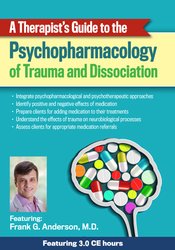


 Purchase this course you will earn
Purchase this course you will earn 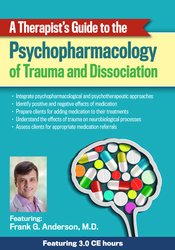
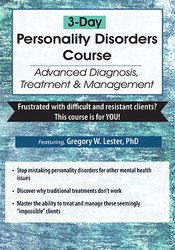

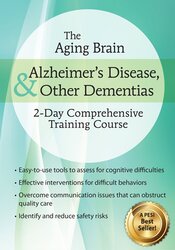
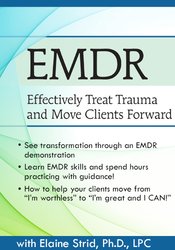
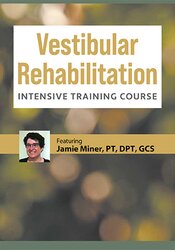
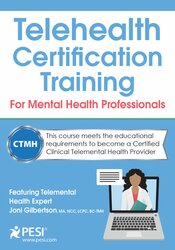
Reviews
There are no reviews yet.